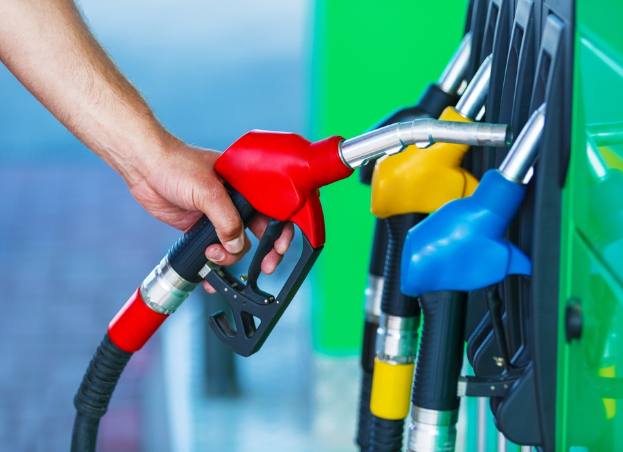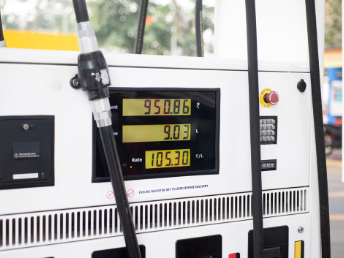



The Future Of Diesel In An Eco-Friendly Driven World
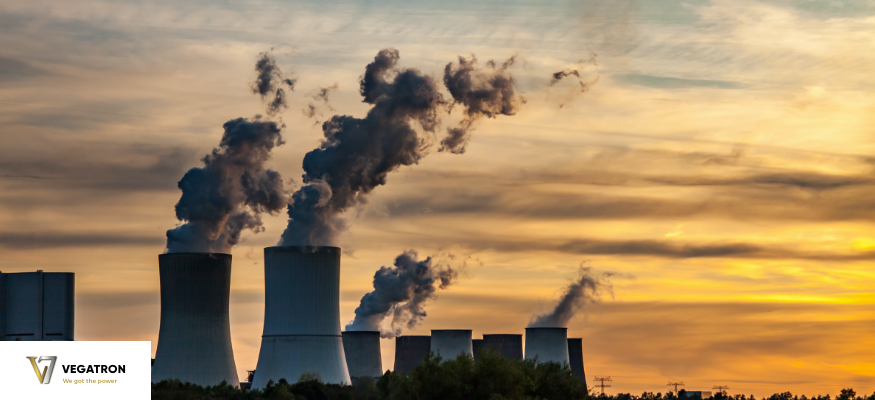
D iesel fuel is used in diesel engines to generate power to move transportation vehicles, such as motorbikes, some of the largest trucks used in freight transport, and even military vehicles. As one of the most widely used fuels on the planet, diesel is also regarded as one of the largest contributors to global climate change.
With global climate change becoming more apparent and extreme environmental changes such as rising sea levels and frequent natural disasters becoming a common sight, will there be any changes to our use of diesel fuel?
Diesel supply is essential for many manufacturing and transportation needs. What does global climate change, as well as the shift toward sustainability mean for the future of diesel suppliers, various economic sectors, and regular consumers like us who benefit from the use of diesel?
Before we dive into that, let’s learn more about global climate change and the effects diesel fuel has on our environment.
Global Warming and Climate Change
2.1. What Is Climate Change And What Caused It
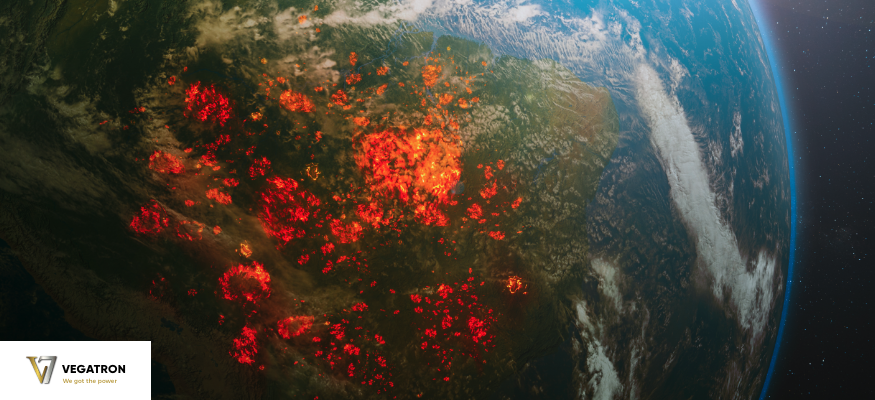
Weather and climate refer to two different environmental conditions. Climate refers to a location’s weather conditions over a long period of time, whereas weather can change on a daily basis.Singapore, for example, is a tropical country with hot and humid weather that alternates between sunny and rainy days.
Climate change refers to long-term changes in temperature and typical weather patterns in a location over many years. It could be changes happening in a specific location or the entire planet.
What we’re seeing now as climate change occurs is the result of human activity, such as the use of fossil fuels. When these fossil fuels are burned, they emit greenhouse gases that are harmful to our environment and the atmosphere. Greenhouse gases, which primarily consist of carbon dioxide, trap the Sun’s heat in the atmosphere, causing our temperatures to rise. This temperature increase is referred to as global warming.
Temperature rises must slow down and be kept to 1.5°C by 2100 if we want to avoid the worst effects of climate change, scientists say. However, if no further action is taken, temperatures could rise by more than 2°C by the end of the century. According to a report by the Climate Action Tracker group, the world is on track to warm by 2.4°C by the end of the century.
Scientists believe that if nothing is done, global warming will eventually exceed 4°C, resulting in devastating heat waves, millions of people losing their homes due to rising sea levels, and irreversible loss of plant and animal species.
Our climate has changed continuously throughout Earth’s history. What was once thought to be a slow and natural process that takes hundreds of thousands of years is now accelerating at an alarming rate. What are some of the negative consequences of global climate change?
2.2. Effects Of Climate Change

As a small city-state near the equator, we may not notice the effects of climate change. However, climate change and global warming have already had a significant global impact on the environment.Extreme weather events are becoming more intense, threatening people’s lives and livelihoods.
Many regions, such as farmlands, could become uninhabitable if global temperatures continue to rise. In other areas, the increase in extreme rainfall is causing historic flooding, as seen in China,Germany, Belgium, and even Singapore, where flooding is becoming a common occurrence whenever the rainy season arrives.
Those living in developing countries will suffer the most because they lack the resources to adapt to climate change. Many farms in these countries are already subjected to excessively hot climates, which will only worsen.

The oceans and the habitats that live in them are also under threat. The Great Barrier Reef in Australia, for example, has already lost half of its corals since 1995 as a result of warmer seas caused by climate change.
Wildfires, such as the one that ravaged the Amazon Rainforest, are becoming more common as climate change increases the likelihood of hot, dry weather. As frozen ground and ice melt in places like Siberia, trapped greenhouse gases will be released into the atmosphere, exacerbating climate change.
With rising temperatures, animals will have a more difficult time finding the food and water they require to survive. Polar bears, for example, may face extinction as the ice on which they rely melts, and elephants will struggle to find the 150 to 300 litres of water they require each day.
Scientists believe that 550 over species could go extinct this century if action is not taken.
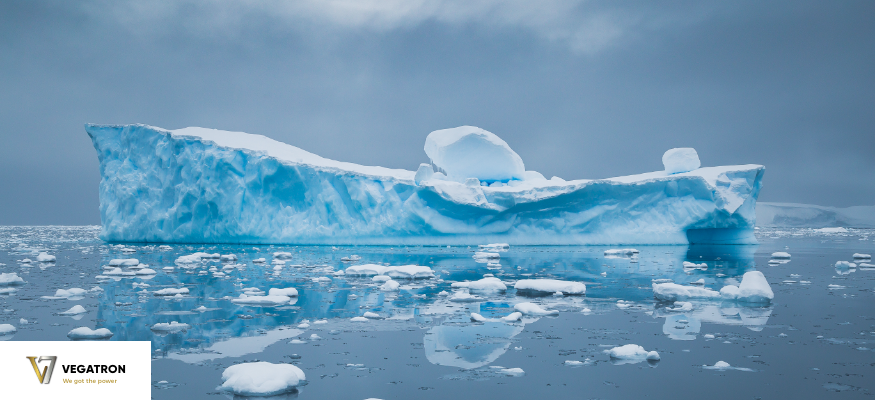
Between the years 2000 and 2019, the world’s glaciers lost an average of 267 billion tonnes of ice per year, enough to submerge the entire surface area of Switzerland under six metres of water. Over the last 20 years, the rate of glacier ice loss has also increased by about 30%.
Every year, more than half of the world’s rivers freeze over. These frozen rivers provide vital transportation networks for high-latitude communities and industries. The amount of greenhouse gases released into the atmosphere by rivers is also regulated by ice cover.
However, climate change has had an impact on river ice cover, and it is predicted that for every 1°C increase in global temperatures, annual river ice cover will decline by about six days. This means that each year, ice covers will remain frozen for shorter periods of time.
Furthermore, sea levels, which had not changed much over the previous 2,000 years, have begun to rise at an average rate of 0.06 inches per year since 1880. This rate increased in 1993, when average sea levels began to rise at a rate of 0.12 to 0.14 inches per year, or roughly twice as fast.
The effects of global climate change that scientists have predicted in the past are now occurring, and extreme weather patterns are also a common occurrence now. As temperatures rise, the risk of longer and more intense droughts increases, threatening agriculture, wildlife and fresh water suppliers.

Now, Singapore is not spared from climate change and global warming as well, the annual mean temperature in Singapore has increased from 26.9°C to 28.0°C between the years 1980 and 2020. In the past, daily temperatures in Singapore ranged between 22°C and 27°C. However, it gradually increased and eventually surpassed 30°C.
Between 1975 and 2009, the mean sea level in the Singapore Straits rose at a rate ranging from1.2mm to 1.7mm per year. Rainfall has also increased in intensity in recent years, with an average annual increase of 67mm per decade from 1980 to 2019.
If global climate change is so harmful to the Earth’s environment, what are governments around the world doing to combat it?
2.3. International Approach To Climate Change
The United Nations Framework Convention on Climate Change (UNFCCC) went into effect on March21, 1994. It is a United Nations entity tasked with assisting in the global response to the threat of climate change.
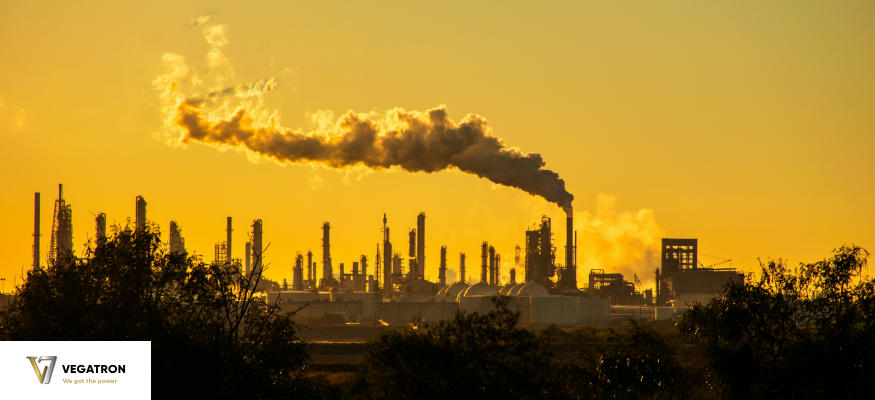
Many countries agree that the only way to combat climate change is to work together. As a result,197 countries have signed the convention, pledging to prevent “dangerous” human interference with the climate system. This entails achieving net-zero emissions by 2050 by reducing greenhouse gas emissions as much as possible and balancing remaining emissions by coming up with strategies to absorb them from the atmosphere.
Here are some of the protocols and agreements under the UNFCCC
A. Kyoto Protocol
The Kyoto Protocol was adopted on 11 December 1997 and finally entered into force on 16February 2005. It is a climate change international agreement that encourages the 192parties to reduce their greenhouse gas emissions in accordance with agreed-upon individual targets.
The Protocol binds only developed countries, imposing a heavier burden on them because it acknowledges that developing countries hold greater responsibility in controlling the levels of greenhouse emissions. This is because developed countries are largely responsible for the current high levels of greenhouse gas emissions.
B. Paris Agreement
The Paris Agreement is another legally-binding international treaty on climate change that entered into force on 4 November 2016. It was adopted by 196 Parties at COP21 (21st Conference of the Parties). Its goal is to limit global warming to well below 1.5°C.
It requires economic and social transformation across all countries, encouraging countries to achieve a climate-neutral world by the year 2050.
Montreal Protocol on Substances that Deplete the Ozone Layer
The Montreal Protocol on Substances that Deplete the Ozone Layer is the only United Nations (UN)treaty that has been ratified by every country on the planet. It is a multilateral environmental agreement that governs the production and consumption of nearly 100 man-made chemicals known as ozone-depleting substances (ODS). When these chemicals are released into the atmosphere, they deplete the ozone layer - a layer that protects humans and the environment from harmful levels of ultra violet radiation from the sun.
The Montreal Protocol was adopted on 15 September 1987, outlining different goals and timetables-for developed and developing countries in a step-wise manner. All parties have specific responsibilities under this treaty regarding the phase-out of various groups of ODS, control of ODS trade, annual data reporting, and other matters. Both developing and developed countries bear-equal but distinct responsibilities, but most importantly, both groups of countries have made binding, time-bound, and measurable commitments.
2.4. Singapore’s Plan To Build A Sustainable Nation
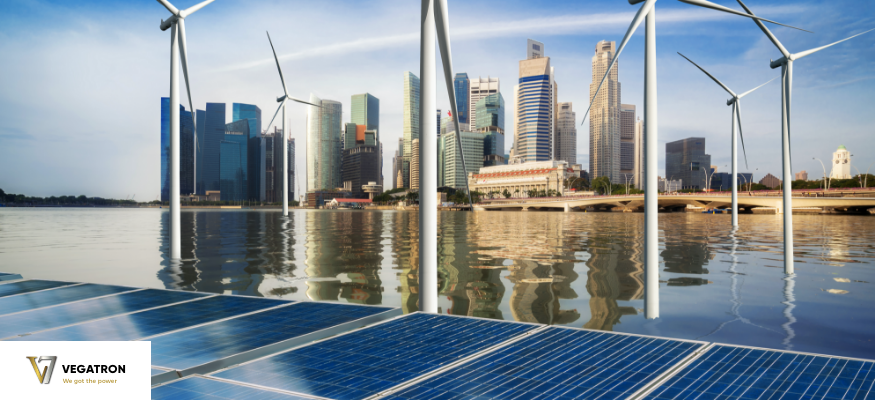
Singapore has set a goal and laid out strategic plans to reduce its greenhouse gas emissions by 36% by 2030, in accordance with the Paris Agreement. These goals are part of our Singapore Green Plan 2030, which aims to lay strong foundations and lead a national movement toward a more sustainable future for Singapore now and in the future.
Singapore Green Plan 2030 is an ambitious long-term plan that builds on ongoing efforts to advance Singapore’s national sustainable development agenda. It lays out concrete goals for the coming years, reinforcing Singapore’s commitments under the United Nations’ 2030 Sustainable Development Goals.
Some of the key targets set out in the Singapore Green Plan 2030 that will affect the transportation and diesel industry include:
1. New registration of diesel cars and taxis to cease from 2025
2. 8 electric-vehicle-ready towns with chargers at all HDB car parks by 2025
3. Car and taxi registrations must be of cleaner-energy models from 2030
4. Installation of 60,000 electric vehicle charging points nationwide, including 40,000 in public car parks and 20,000 in private premises by 2030
In addition, as electric vehicles (EV) are the most promising clean-energy technology today,Singapore will also be setting aside $30 million over the next five years for EV-related initiatives, such as measures to improve charging provision at private premises.
To further encourage the early adoption of electric vehicles, Singapore will also narrow the cost difference between electric vehicles and internal combustion engine cars. Additional RegistrationFree floor will be lowered to zero for electric vehicles to enable mass-market car buyers to maximise the rebates from the EV Early Adoption Incentive. The road tax treatment for EVs will also be adjusted
Also read: Petrol Pump Prices is Expected to Continue to Rise
Similarly, Singapore will further discourage the use of internal combustion engine vehicles, such asdiesel vehicles. Steps have been taken to reduce vehicular emissions and positive outcomes havebeen achieved. These steps include:
Restructuring diesel taxes towards a usage-based tax system, away from an annual lump-sum tax system.
Taxi companies have been shifting towards petrol-hybrid and electric vehicles, with the proportion of diesel taxis halving from 86% in 2015 to 42% in 2020.
To further drive our economic activities towards sustainability, Singapore has also launched anEnterprise Sustainability Programme to support Singapore companies in building capabilities and capturing new opportunities in sustainability development.
What Does This Mean for Diesel?
3.1. Diesel’s Contribution To Climate Change
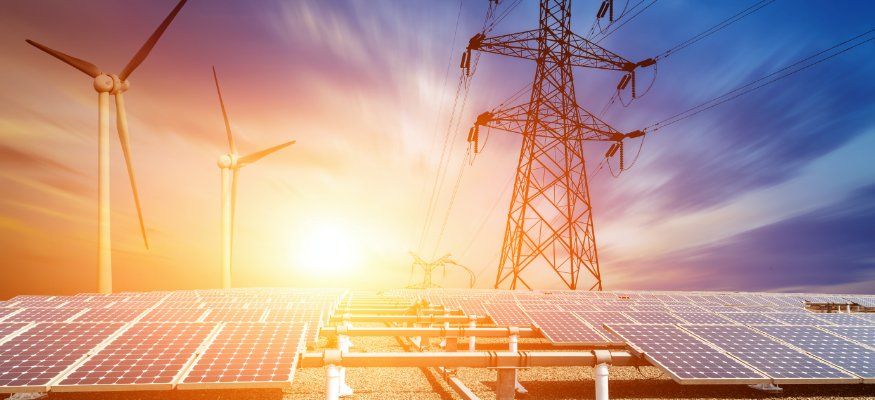
Diesel fuel is the most energy-dense fuel, and diesel engines are the most efficient technology type for converting this energy into power to operate vehicles and machinery. Because of the combination of diesel fuel’s energy density and engine efficiency, diesel accounts for 76% of commercial vehicles on the road today.
However, when diesel fuel is burned, it emits a large number of harmful emissions, making diesel vehicles major sources of harmful pollutants such as ground-level ozone and particulate matter. These emissions have the potential to harm human health, the environment, and the global climate.
Ground-level ozone damages crops, trees and other vegetation. The emissions also contribute to acid rain, which affects soil, lakes and streams, before entering the human food chain via water, product, meat and fish. Exposure to the emissions can also cause serious health problems such as asthma and respiratory illnesses, as well as worsening heart and lung disease in children and the elderly. In terms of public health, the researchers estimate that the gasoline industry kills 115,000 people prematurely each year, while the diesel industry kills 122,100.
Furthermore, greenhouse gas emissions from diesel engines contribute to climate change, which affects air and water quality, weather patterns, sea levels, ecosystems, and agriculture. What does this mean for diesel in a world where governments are aiming for zero emissions?
3.2. Is This The End Of Diesel?

Governments around the world have recently done a lot to combat climate change and protect the environment. One of the more serious changes is the prohibition on the sale or use of diesel vehicles.China, Japan, Denmark, Ireland, and Norway are among these nations. Other countries, including Egypt, Taiwan, Portugal, and Sri Lanka, have announced bans, but no specific date has been set.
Concerns about the pollutants diesel engines emit have also harmed diesel’s reputation as a major contributor to harmful emissions. The international scandal engulfing German automaker Volkswagen exposed the company for installing “defeat devices” in its diesel-powered vehicles-software that allows cars to artificially cheat and pass emission tests, even though actual performance on the road is more polluting and less carbon-friendly.
As a result, in addition to the current laboratory tests, the European Union has mandated that future vehicles undergo a Real Driving Emissions test and meet the associated emission standards.
With governments outlawing diesel vehicles and the auto industry, as well as the maritime industry shifting toward electrification, it appears likely that diesel will be phased out in the coming decades.However, new technological developments in the industry indicate that diesel may not be extinct just yet. Diesel vehicles can now run partially or entirely on renewable fuel derived from organic waste.Diesel powertrains can also be combined with electric motors to create diesel hybrids.
According to industry experts, the future is electric, but it may take some time. Companies feel that consumers will be looking for other options along the way, including diesel, which has been around for more than a century.
3.3. The Future Of Diesel
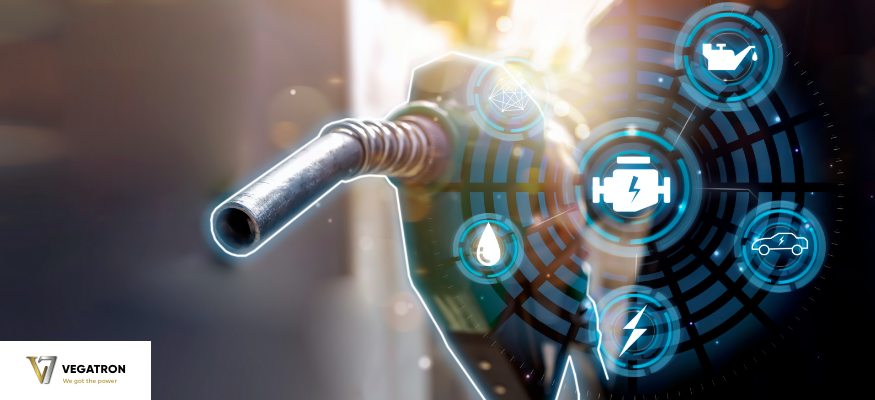
Emerging technologies, such as batteries and fuel cells, will have a significant impact on the future of transportation and possibly other sectors of the economy. These are all new initiatives to reduce green house gas emissions. While some of these new technologies may be able to replace diesel in some applications, diesel fuel will remain a dominant technology for the foreseeable future.
Diesel fuel and diesel engines cannot be completely eliminated from our economy. Even authorities, such as government sources and international consulting firms, agree that diesel fuel will be important for many decades to come. This is due to the fact that many other new technologies have yet to reach commercial availability and have not been thoroughly studied to determine potential impacts on our planet.
Diesel fuel and diesel engines are the most energy-efficient internal combustion engines, capable of producing near-zero emissions while increasing fuel efficiency and using low-carbon renewable bio fuels. Some new technologies, such as Adblue, can be added to diesel engine exhaust to convert nitrogen oxide gas into harmless nitrogen and water vapour. As a result, the number of harmful emissions released into the atmosphere is reduced.
Diesel fuel will continue to evolve to meet the demands of today and tomorrow for efficient, clean, and reliable power across various economic sectors.Further advances in diesel technology are expected to make a significant contribution to achieving climate goals; in fact, some of the most recent generations of advanced diesel technology are even helping to cool our warming planet.
There will be four key strategies defining the future of diesel supply, even inSingapore. They include bringing emissions closer to zero, increasing energy efficiency, expanding the use of renewable fuels, and hybridisation where possible. Expect to see more of diesel supply’s expanding capabilities in our sustainable future.
About Vegatron
4.1. Who We Are And What We Do

Vegatron is where the future of oil and gas begins. While prices fluctuate and the market remains volatile, we at Vegatron strive to provide the best diesel supply at the most cost-effective pricing.
As we enter a new era of sustainability development, we have the opportunity to steer the energy industry toward more sustainable and environmentally friendly energy systems. In the midst of this transition, Vegatron believes it is time for reinvention, and we hope to lead the industry in Singapore in finding innovative ways to reduce greenhouse gas emissions from the oil and gas industry.
Vegatron is a diesel fuel supplier in Singapore that strives to be among the best in the industry. We have identified the significant impact of advantages in digital technology and have prioritised it. We handpick the most durable and tough operators for our transportation while still ensuring low emissions.
We have also developed an in-house V-7 Technology system that encourages an eco-friendly environment to take this industry to the next level.
Whether you are a small business operator or a global conglomerate, be it a new or existing customer of ours, we are committed to providing unrivalled service to all. This means that you can always rely on us to provide premium diesel supply and diesel delivery when you need it. Contact us today for more information on our diesel supply and delivery service.



